Enlightenment For Less
The strange koans on Trisonic’s 99-cent-store products.
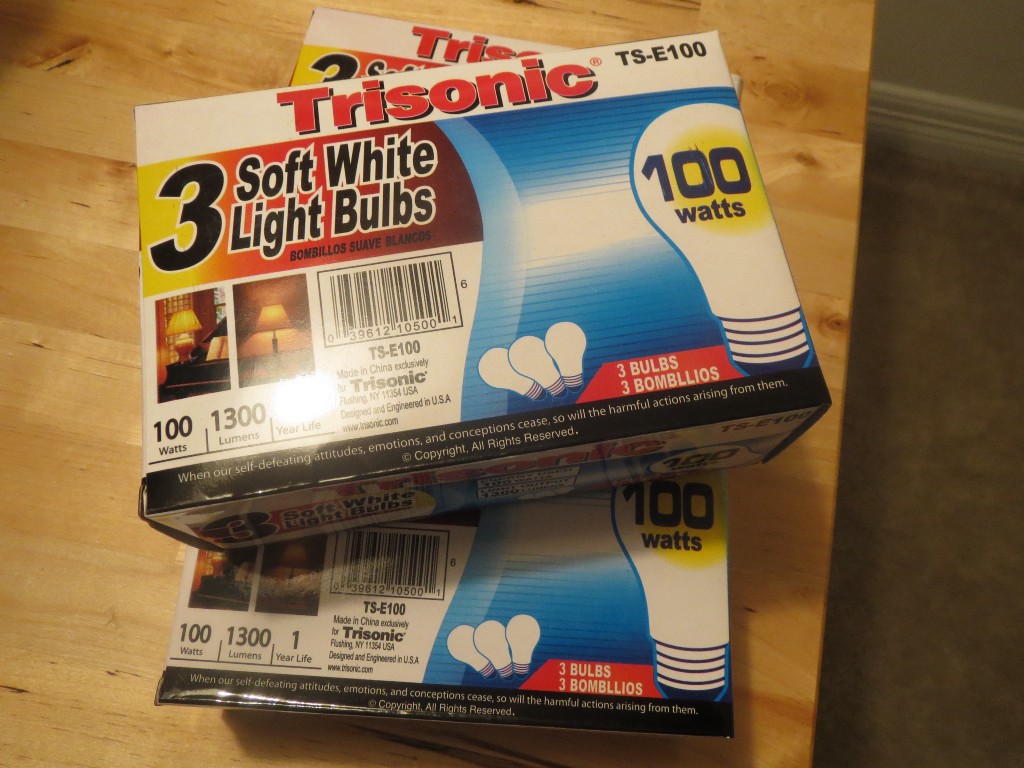
“Greed not only brings misery, it may also bring ruin.” This is a fair point, but it’s a bit strange to hear from a package of plastic hanging hooks at the 99-cent store. There it is, though, tucked between the large “HOUSEWARE” and the smaller “©Copyright. All Rights Reserved,” a few inches below big red Trisonic brand name. Scan the shelves for other Trisonic wares, and you’ll notice that each has a gnomic quote.
Bland and vaguely technocratic, Trisonic is the perfect name for a dollar store brand. It’s slightly off in an unplaceable way, like the fictional stand-in for a real-world counterpart. The philosophical quotes on their packages are similarly inconspicuous. They’re not concealed like the “John 3:16” on In & Out cups and wrappers, but hidden in plain sight, no different from the part of the label that the eye glosses over like a display ad.
Some of the quotes are pretty standard. “People are wrong to focus narrowly on themselves.” Others are more ominous: “A kind heart enjoys heavenly bliss; an evil mind experiences hell.” Some sound like something out of a Peter Handke novel: “As you become more detached from the world, rather than denying your humanity, you become more humane.” Occasionally they’re in all-caps, like a stray Jenny Holzer piece: “THE BUSY MAKE THE MOST OF TIME. THE DILIGENT ENJOY THE BEST OF HEALTH.”

In Ann Beattie’s fantastic 2010 novella, Walks with Men, a young writer in New York City is given advice by an older man, her mentor-cum-boyfriend: “purchasing only the finest brands or shopping at thrift stores was the only way to acquire things — anything in between was bourgeois and pathetic.” I was raised with the exact opposite attitude: a good sale is always worth perusing, and shopping was as a pastime. If we had to kill half an hour, my mother would take me to TJ Maxx — I have fond memories of searching for 80% off Volcom shirts. Today, when I’m feeling wistful, I go to the store.
Like most people I know, I feel wistful a lot. I find myself planning entire afternoons around stores: “If I walk to the bookstore in Crown Heights, I can hit Modell’s, French Garment Cleaners, and Home Depot on the way home.” But I can only buy so many paperbacks and light jackets and houseplants. I return home with nothing to show for my afternoon and a few less hours in my life. I used to joke that I was working on a memoir called, By Design Within Reach I Sat Down and Wept.
99-cent stores in New York City are an under-appreciated refuge. Those who don’t ignore them entirely tend to think of variety stores as lesser Duane Reades. But these mini bazaars are much more than a place to buy expired batteries in a pinch. Thousands of products, from plates to shelving to lightbulbs to pregnancy tests (apparently, these are an especially good deal) are crowded under one roof, selling for a fraction of their standard prices.
There are a few ways that products end up in discount stores: some are bought on closeout from retailers, or on the gray market, and some are just normal products, sold as they would be at any other store. But there are also generally adequate products designed specifically for discount stores. If you’re in the silent majority who needs to use a screwdriver three times a year, they’ll do just fine. Trisonic dominates that market, producing a wide and seemingly arbitrary selection of wares, like kitchen knives and lightbulbs and dog collars and shelving support.

There’s a Village Voice article from 2012 titled “18 Pieces of Bizarre, Paternalistic Advice from a Chinese Hardware Company’s Packaging.” This glib reaction seems wrong; Trisonic’s products are made in China, but the company is based in Flushing, New York. The advice isn’t bizarre, it’s just weird that it’s on a box of screws. I suppose it’s paternalistic, but what advice isn’t?
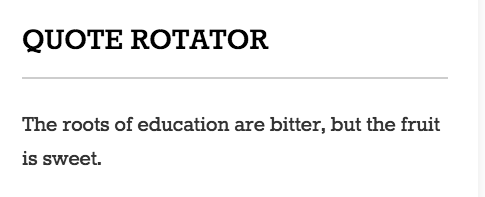
It’s not like I defend the quotes as gospel, though they do generally seem like good ideas. I appreciate them as a sort of literature, like a line from a billboard in a place I’ll never visit. They have an ESL quality that turns hackneyed sentiments into something clunkier; the inelegant grammar forces the reader to spend extra time parsing what the words actually mean. Common clichés are considered anew — Treat others as you would like to be treated becomes Whether or not you understand profound ideas, it is important to be a good person wherever you are now.
A lot of the quotes are about forgiveness and kindness. I love the idea that someone may read a tape measure box and decide to forgive me for something. Many of the quotes come from Cheng Yen, a Taiwanese Buddhist nun. I found one from Plato, and many seemed to be from the Dalai Lama. I began to wonder if Trisonic was secretly propagating a religious movement.
On Trisonic’s website, there were no answers on the F.A.Q. page. Alongside a quote rotator was something of an explanation:
“When you buy a product or go into a store what is your purpose for going into the store? Typically we have noticed much too often that people go into a store to just buy some tool, headset or party accessories and we thought that is good that people can do that but the product can be more than just a product. . . The reasoning behind these quotes are that our company is not just a company that creates products we also believe in how, as a company, we are part of the community and that the products are part of our daily lives.”
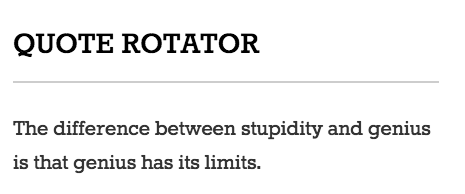
There was a 718 phone number listed in the contact section. I called and was transferred to Michael, a brusque but kind man with a Queens accent. I told him I was looking to find out more about the quotes on his products.
“What about them?” he asked, as if there was nothing at all unusual about the practice.

I told him I’d never really seen a company do anything like it.
“Yeah, a lot of people like it very much.”
That’s good. As the triplex jack phone adapter says, the purpose of our life is happiness. But are the quotes a religious thing?
“We really don’t want it to be religious because it could offend some people.”
He told me the practice of putting philosophical quotes on the packages started “probably seven or eight years ago,” and that there wasn’t necessarily any thought given to which quote goes on what product — the nightlight that I’d seen with a quote about dreams was probably just a coincidence. I asked if he could explain in more depth, but he just said, “we decided that, when people look at packaging, they want to know more than just what’s on the package.” It was a vague answer, but probably the truth. He seemed eager to get back to work, so I let him go.
I spent a week wondering if Trisonic was being intentionally mysterious, or if I’m just very bad at asking questions. One must overcome difficulties, not be overcome by them, I thought. A confused mind suffers agony; an enlightened mind feels at ease. I called them back. Again I was transferred to Michael. Previously curt, he now had the demeanor of a downtown traffic cop.
“I’m very, very busy.”
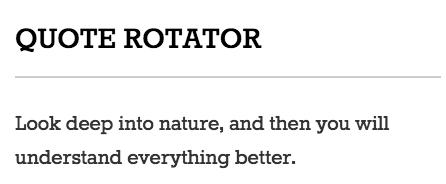
During our previous phone call, he had told me that he wasn’t the person who’d come up with the idea of putting quotes on Trisonic products. Maybe he could tell me who had come up with the idea?
“No.”
Could he perhaps tell me more about why not?
“No.”
Maybe they would prefer that the quotes seem to be coming from Trisonic as a brand, and not an individual?
“Yes. Okay next, what’s the next question? I’m very, very busy, so I don’t have time for this.”
I did not repeat the lesson from the 4” cutting wheel for metal, Share your knowledge. It’s a way to achieve immortality. Instead I asked if there’s a reason that the quotes appear on the packaging without attribution to their original speaker.
“No,” Michael said as he hung up on me.

Forgive those who unintentionally hurt us.
I’d originally expected that Trisonic would be eager to discuss their philosophical leanings. At the very least, I thought I’d get a boilerplate PR message. Instead, Michael just wanted to get off the phone. People are wrong to focus narrowly on themselves, I remembered from the nitrogen bulb package. A solipsist, I’d interrupted his day — twice — with the expectation that he’d want to talk to me.
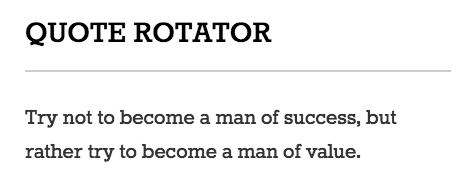
Michael may have been strangely cryptic, but I’m pretty sure he’s telling the truth. Trisonic’s spiritually enlightened packaging probably isn’t a religious conspiracy or a diabolical marketing ploy. Someone just thought customers would appreciate it if packaging had wise words to offer, like a fortune cookie for home goods. And why not?
Thousands of candles can be lighted from a single candle, and the life of the candle will not be shortened. Happiness never decreases by being shared.
Hanson O’Haver is a writer living in Brooklyn. Follow him on Twitter: @hansonohaver
